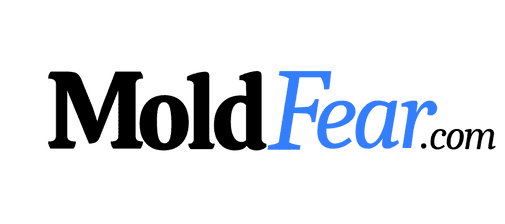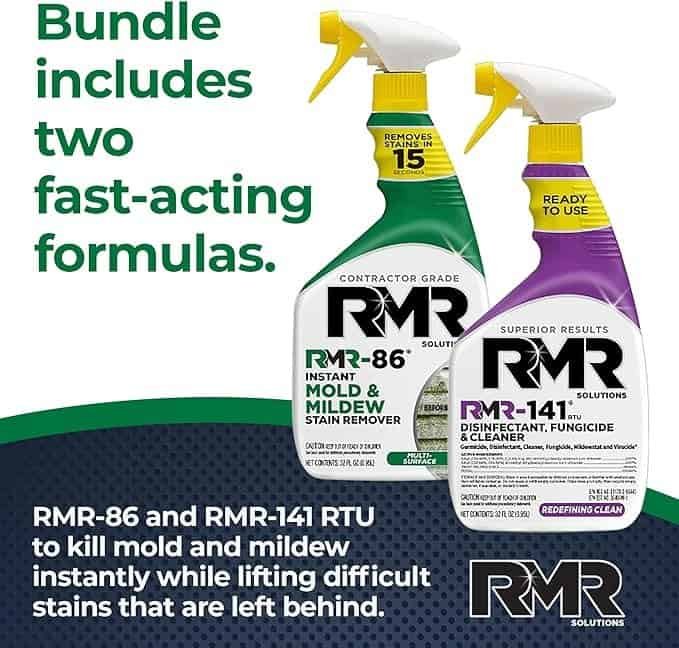Mold can be found almost anywhere, indoors and outdoors, and can grow on any surface that provides moisture and organic matter. While mold is a natural part of the environment, exposure to mold toxins can have adverse effects on human health. Mold toxins can weaken the immune system, leading to a variety of health problems, including respiratory issues, allergic reactions, and infections.

Strengthening the immune system against mold toxins is essential for maintaining good health. The immune system is responsible for protecting the body from harmful substances, including mold toxins. A strong immune system can identify and eliminate mold toxins before they cause harm to the body. Understanding the fundamentals of the immune system and the effects of mold toxins on health is crucial in developing preventive measures and lifestyle modifications to strengthen the immune system against mold toxins.
Key Takeaways
- Strengthening the immune system is essential for protecting the body against the harmful effects of mold toxins.
- Understanding the fundamentals of the immune system and the effects of mold toxins on health is crucial in developing preventive measures and lifestyle modifications.
- Nutritional support and medical interventions can also be used to strengthen the immune system against mold toxins.
Understanding Mold Toxins

Mold toxins, also known as mycotoxins, are toxic substances produced by certain types of molds. These toxins can cause a wide range of health problems, including allergic reactions, respiratory problems, and neurological symptoms.
Mold toxins are commonly found in damp and humid environments, such as bathrooms, kitchens, and basements. They can also be found in food, particularly grains and nuts, that have been contaminated with mold.
Exposure to mold toxins can cause a variety of symptoms, depending on the type and amount of toxin involved. Some common symptoms include coughing, wheezing, sneezing, and skin irritation. In more severe cases, exposure to mold toxins can cause neurological symptoms, such as headaches, dizziness, and memory loss.
It is important to note that not all molds produce toxins, and not all people are sensitive to mold toxins. However, if you suspect that you have been exposed to mold toxins, it is important to seek medical attention to determine the cause of your symptoms.
To reduce your risk of exposure to mold toxins, it is important to keep your home clean and dry, and to avoid damp and humid areas. If you do find mold in your home, it is important to clean it up as soon as possible to prevent further growth and potential exposure to toxins.
In addition, it is important to be mindful of the foods you consume, particularly grains and nuts, and to avoid consuming any food that appears to be moldy or has a musty odor. By taking these steps, you can help to reduce your risk of exposure to mold toxins and protect your overall health.
Fundamentals of the Immune System

Immune System Components
The immune system is a complex network of cells, tissues, and organs that work together to protect the body from harmful pathogens, including mold toxins. The main components of the immune system include:
-
White blood cells: These cells are responsible for identifying and destroying pathogens that enter the body.
-
Lymphatic system: This system is a network of vessels and tissues that help to remove waste and toxins from the body.
-
Antibodies: These are proteins produced by the immune system in response to specific pathogens.
-
Bone marrow: This is the spongy tissue found in the bones that produces white blood cells.
-
Thymus gland: This gland is located in the chest and plays a key role in the development of T cells, which are important for immune function.
Immune Response Mechanisms
When the immune system detects a pathogen, it triggers a series of responses to try to eliminate it from the body. These responses include:
-
Inflammation: This is a process where the body sends white blood cells to the site of infection to help fight off the pathogen.
-
Fever: This is a natural response to infection that helps to raise the body’s temperature, making it more difficult for the pathogen to survive.
-
Phagocytosis: This is the process where white blood cells engulf and destroy pathogens.
-
Antibody production: As mentioned earlier, antibodies are proteins produced by the immune system in response to specific pathogens. These antibodies help to identify and destroy the pathogen.
Overall, a healthy immune system is essential for protecting the body from mold toxins and other harmful pathogens. By understanding the fundamentals of the immune system, individuals can take steps to strengthen their immune system and reduce their risk of illness.
Effects of Mold Toxins on Health
Exposure to mold toxins can have a range of negative effects on health, particularly if the exposure is prolonged or occurs in high concentrations. The effects of mold toxins can vary depending on the individual’s sensitivity and the type of mold present.
Respiratory Issues
One common effect of mold toxins is respiratory issues. These may include coughing, wheezing, shortness of breath, and chest tightness. In individuals with pre-existing respiratory conditions such as asthma, exposure to mold toxins can exacerbate symptoms and lead to increased frequency and severity of attacks.
Prolonged exposure to mold toxins can also lead to the development of respiratory infections, particularly in individuals with weakened immune systems. These infections can be difficult to treat and may require hospitalization in severe cases.
Neurological Effects
In addition to respiratory issues, mold toxins can also have neurological effects. These may include headaches, dizziness, fatigue, and difficulty concentrating. In some cases, exposure to mold toxins can even lead to more serious neurological conditions such as seizures and tremors.
Research has also suggested a possible link between exposure to mold toxins and the development of certain mental health conditions such as depression and anxiety. However, further research is needed to fully understand the extent of this relationship.
Overall, it is important to take steps to minimize exposure to mold toxins in order to protect one’s health. This may include regular cleaning and maintenance of indoor environments, as well as seeking professional help in cases of severe mold infestations.
Preventive Measures

Environmental Controls
Preventing mold growth in the home is the first step to avoiding mold toxins. Here are some environmental controls that can help:
- Keep humidity levels below 60%.
- Fix any leaks or water damage immediately.
- Use ventilation fans in bathrooms and kitchens to reduce moisture.
- Use a dehumidifier if necessary.
- Clean and dry any surfaces that are damp or wet within 24-48 hours.
- Avoid carpeting in areas that are prone to moisture, such as basements and bathrooms.
- Use mold-resistant paint in areas that are prone to moisture.
Dietary Strategies
A healthy diet can also help to strengthen the immune system against mold toxins. Here are some dietary strategies that can help:
- Consume a variety of fruits and vegetables, which are rich in antioxidants and other nutrients that support the immune system.
- Avoid processed foods, which can contain mold and other toxins.
- Consider taking a probiotic supplement, which can help to maintain a healthy gut microbiome.
- Drink plenty of water to help flush toxins out of the body.
- Consider incorporating anti-inflammatory foods, such as turmeric and ginger, into the diet.
By implementing these preventive measures, individuals can reduce their risk of exposure to mold toxins and strengthen their immune system.
Nutritional Support
Vitamins and Minerals
Consuming a balanced diet rich in vitamins and minerals is essential for a healthy immune system. Certain nutrients can help support the body’s ability to defend against mold toxins. Vitamin C is a powerful antioxidant that can neutralize toxins and protect cells from oxidative damage. Foods rich in vitamin C include citrus fruits, broccoli, and bell peppers.
Vitamin D is also essential for immune function and can help reduce inflammation caused by mold toxins. Sources of vitamin D include fatty fish, egg yolks, and fortified dairy products. Zinc is another important nutrient that can support the immune system and help reduce inflammation. Foods rich in zinc include oysters, beef, and pumpkin seeds.
Probiotics and Prebiotics
Probiotics are beneficial bacteria that can help support the immune system by promoting a healthy gut microbiome. A healthy gut microbiome can help reduce inflammation and improve immune function. Foods that are rich in probiotics include yogurt, kefir, and sauerkraut.
Prebiotics are non-digestible fibers that feed the beneficial bacteria in the gut. Consuming prebiotics can help promote the growth of these beneficial bacteria. Foods that are rich in prebiotics include garlic, onions, and bananas.
Incorporating a variety of nutrient-dense foods into your diet can help support your immune system and reduce the risk of mold toxin exposure.
Lifestyle Modifications
Exercise and Fitness
Regular exercise is an important part of a healthy lifestyle, and it can also help to strengthen the immune system. Exercise can improve circulation, which helps to deliver oxygen and nutrients to the body’s cells, including immune cells. It can also help to reduce inflammation, which is a common response to mold toxins.
It is important to choose an exercise routine that is appropriate for your fitness level and health status. For most people, a combination of aerobic exercise (such as walking, running, or cycling) and strength training (such as weightlifting or resistance bands) is ideal. Aim for at least 30 minutes of moderate exercise most days of the week.
Stress Management Techniques
Stress can weaken the immune system and make it more difficult for the body to fight off infections and toxins. Therefore, it is important to find effective ways to manage stress. There are many different stress management techniques that can be effective, including:
- Deep breathing exercises
- Meditation or mindfulness practices
- Yoga or tai chi
- Progressive muscle relaxation
- Spending time in nature or engaging in other relaxing activities
It is important to find a stress management technique that works for you and to make it a regular part of your routine. Even just a few minutes of deep breathing or meditation each day can have a positive impact on the immune system.
Medical Interventions
Pharmaceutical Options
Pharmaceutical interventions can be helpful in treating mold toxicity. Antifungal medications such as fluconazole, itraconazole, and voriconazole can be prescribed to help reduce the fungal load in the body. These medications may be prescribed for a short period of time or for longer periods if necessary. However, it is important to note that these medications can have side effects and should only be taken under the guidance of a healthcare professional.
Detoxification Therapies
Detoxification therapies can also be used to help remove mold toxins from the body. Cholestyramine, a medication used to lower cholesterol, can also bind to mold toxins in the gut and help remove them from the body. Other detoxification therapies such as intravenous vitamin C and glutathione can also be used to support the body’s natural detoxification processes.
It is important to note that while these medical interventions can be helpful in treating mold toxicity, they should not be the only approach taken. Addressing the underlying cause of mold exposure and making lifestyle changes to support the immune system are also important factors in preventing and treating mold toxicity.
Monitoring and Evaluation
Regular monitoring and evaluation of one’s immune system is crucial in determining whether it is strong enough to fight against mold toxins. This can be achieved through various methods such as blood tests, allergy tests, and other diagnostic tests.
Blood tests can measure the levels of antibodies in the bloodstream, which can indicate whether the immune system is responding to an infection or exposure to mold toxins. Allergy tests can identify any allergic reactions to mold, which can also be an indication of a weakened immune system.
In addition to diagnostic tests, it is important to monitor any symptoms that may arise from exposure to mold toxins. These symptoms may include respiratory problems, skin irritation, and headaches. If these symptoms persist or worsen, it may be necessary to seek medical attention.
Overall, regular monitoring and evaluation of one’s immune system can help identify any weaknesses and allow for appropriate measures to be taken to strengthen it against mold toxins.
Frequently Asked Questions
What dietary changes can support the body’s detoxification from mold exposure?
A diet rich in antioxidants, vitamins, and minerals can help support the body’s natural detoxification processes. Foods such as leafy greens, berries, citrus fruits, and cruciferous vegetables are excellent sources of antioxidants. In addition, foods that are high in sulfur, such as garlic and onions, can help support liver function, which is crucial for detoxification.
Which supplements are recommended to aid in the recovery from mold illness?
Supplements such as vitamin C, vitamin D, and zinc can help support the immune system, which can be compromised after mold exposure. Probiotics can also be beneficial, as they can help restore the balance of gut bacteria that may be disrupted by mold toxins.
How effective is bentonite clay in removing mold toxins from the body?
Bentonite clay is often touted as a natural remedy for mold toxicity, but there is limited scientific evidence to support its effectiveness. While some studies have shown that bentonite clay can bind to mycotoxins in vitro, more research is needed to determine its effectiveness in humans.
What strategies are available for managing weight gain following mold exposure?
Weight gain can be a common symptom of mold exposure, but it is important to address the underlying cause rather than simply focusing on weight loss. A healthy diet and regular exercise can help support overall health and wellbeing, which can in turn help manage weight.
What is the typical duration for detoxifying the body from mold toxins?
The duration of detoxification can vary depending on the individual and the severity of the mold exposure. It is important to work with a healthcare provider to develop a personalized detoxification plan.
How can activated charcoal be used in the treatment of mold toxicity?
Activated charcoal is often used as a natural remedy for mold toxicity, as it can bind to mycotoxins in the gut and prevent their absorption into the bloodstream. However, it is important to use activated charcoal under the guidance of a healthcare provider, as it can also bind to beneficial nutrients and medications.













